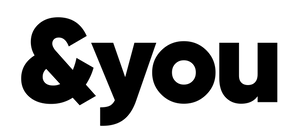How Hair Washing Affects Growth
Hair growth begins at the scalp. If your scalp isn’t in good condition, your strands may not reach their full potential. Here's how hair washing habits play a role in that process:
-
Cleansing the scalp promotes circulation and removes buildup that can block hair follicles.
-
Managing sebum (your scalp’s natural oil) is important. While it hydrates the scalp, too much can lead to issues like dandruff or seborrheic dermatitis.
-
Overwashing with harsh shampoo can cause hair breakage, especially at the ends.
According to the American Academy of Dermatology, how often you wash your hair depends largely on hair type, environment, and lifestyle. There's no one-size-fits-all rule—but finding your own balance is key to growth.
How Often Should You Wash Based on Your Hair Type?
Oily Hair or Scalp
If your scalp gets greasy within a day or two, daily or every-other-day washing is ideal. Excess oil can clog pores and contribute to scalp inflammation, which may disrupt the hair growth cycle.
Dry or Curly Hair
Dry, curly, or textured hair types need less frequent washing—about once or twice a week. These hair types are naturally more porous and prone to dryness. Washing too often can lead to frizz and breakage.
Straight or Fine Hair
Fine hair tends to get oily quickly and may need washing every other day to prevent buildup and maintain volume.
Chemically Treated or Colored Hair
If your hair has been bleached, dyed, or chemically treated (like rebonding), you should wash less often—around twice a week—with gentle, sulfate-free products to preserve moisture and strength.
Living in the Philippines means dealing with heat, humidity, and air pollution—factors that affect how often you should wash your hair. Sweat, sebum, and exposure to pollution in urban areas like Metro Manila can cause buildup on the scalp. If you sweat daily or commute often, you might benefit from more frequent washes—but it’s crucial to use gentle shampoos and always condition afterward. A weekly scalp exfoliant or clarifying shampoo can help remove buildup without drying out your hair.
Common Myths About Hair Washing and Hair Growth
“Washing your hair too much causes hair loss.”
Not quite. Washing alone doesn’t cause hair loss, but overusing strong shampoos or scrubbing too hard can cause breakage—especially in already damaged hair.
“The less you wash, the more your hair grows.”
Skipping washes for too long can result in scalp buildup, clogged follicles, and even dandruff. A clean, balanced scalp is essential for healthy growth.
“Daily shampooing is bad for everyone.”
It depends on your hair type and shampoo. If your scalp is oily and you use a mild, moisturizing formula, daily washing can work.
A study by the National Institutes of Health (NIH) notes that both under- and overwashing can disrupt scalp health and hair follicle function, which can affect the growth cycle.
Tips to Maximize Growth While Washing
Want to make every wash day count for hair growth? Try these tips:
-
Use a gentle shampoo with ingredients like biotin, caffeine, or saw palmetto.
-
Massage your scalp for at least one minute to stimulate circulation.
-
Always condition after shampooing—especially the mid-lengths and ends.
-
Avoid hot water, which can dry the scalp. Lukewarm water is best.
-
Minimize heat styling and rough towel drying.
On days you don’t shampoo, here’s how to keep your scalp fresh:
-
Dry shampoo can absorb oil but should be used sparingly to avoid buildup.
-
Co-washing (conditioner washing) is a gentle cleansing method that hydrates dry hair types.
-
Scalp sprays and mists offer lightweight hydration and can soothe itchy or inflamed scalps.
Signs You Might Be Washing Too Often
If you notice these issues, it could mean you’re overwashing:
-
A tight or itchy scalp
-
Dry, brittle hair or split ends
-
Excessive oiliness shortly after washing (a rebound effect)
-
More breakage during brushing or styling
Listen to how your hair feels. A healthy scalp shouldn’t feel stripped, and your strands should look soft and manageable. Washing helps—but growing healthier, longer hair requires a well-rounded approach. Here’s what else plays a role:
-
Nutrition: Hair is made of protein. Get enough through eggs, lean meat, tofu, and legumes. Nutrients like zinc, biotin, and iron are also vital. Healthline breaks down the best foods for hair growth.
-
Stress levels: High stress can trigger hair loss (telogen effluvium). Activities like yoga, exercise, or mindfulness can help.
-
Supplements: Consider adding Andyou's hair regrowth treatments to your routine to support your scalp and hair follicles from within.
-
Haircuts: Regular trims every few months prevent split ends from traveling up the strand and breaking the hair.
If you’ve tried everything and still notice shedding, consult a dermatologist. Some causes of hair loss—like alopecia, hormonal imbalance, or fungal infection—require medical intervention. You can consult a licensed doctor without leaving your home through Andyou’s telehealth services.
Creating a Hair-Washing Routine That Supports Growth
So, how often should you wash your hair for optimal growth? The answer depends on your hair type, lifestyle, and environment—but the key is balance. Clean hair and a healthy scalp go hand in hand with strong, steady growth. Whether you're shampooing three times a week or just once, the most important thing is using the right products and staying consistent.
-
For oily hair: wash daily or every other day
-
For dry or curly hair: wash once or twice a week
-
For colored or damaged hair: wash less frequently with nourishing formulas
By focusing on scalp care, choosing gentle routines, and supporting your hair internally with the right nutrients, you can build a regimen that helps you grow thicker, stronger strands over time. If you're ready to build a routine for hair growth, you can start learning through Andyou’s Health Club designed to nourish, protect, and support your strands—starting at the roots.



















